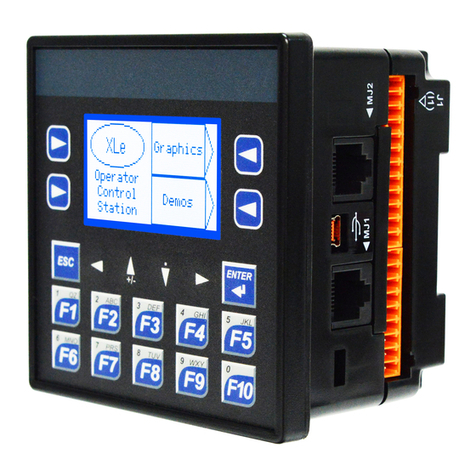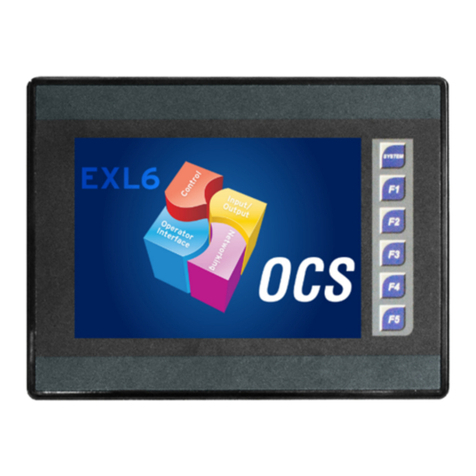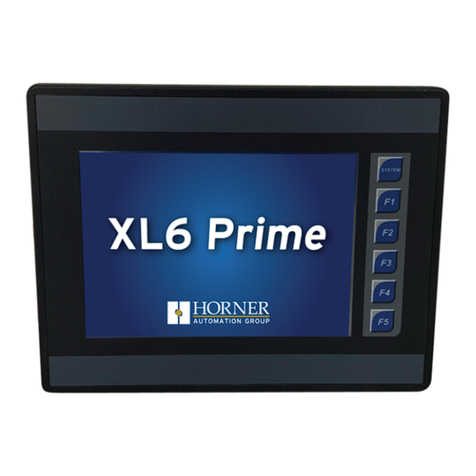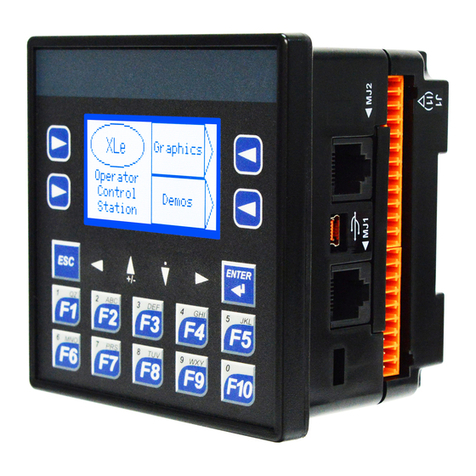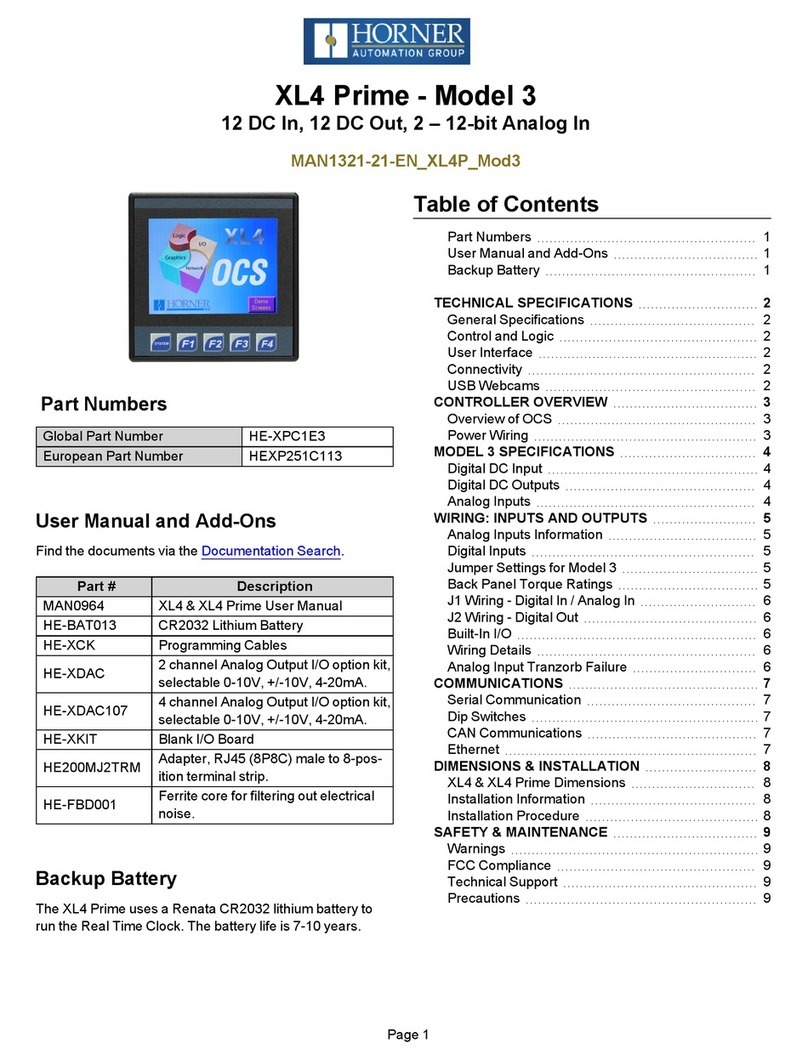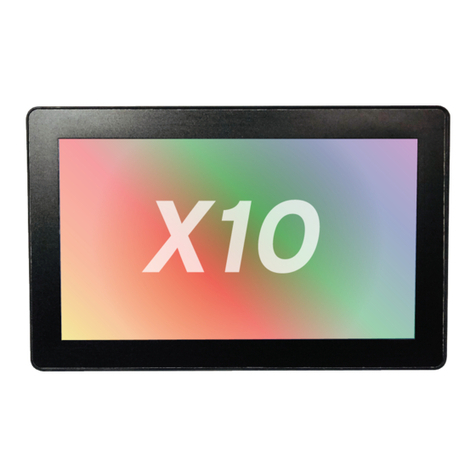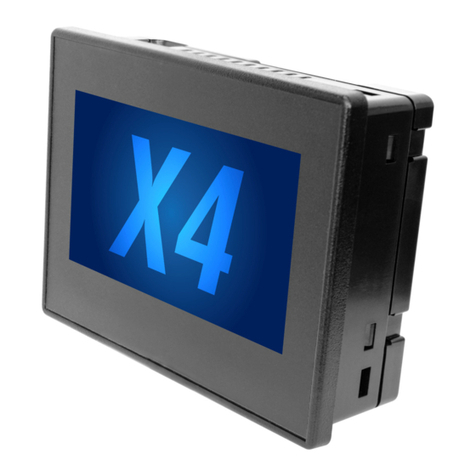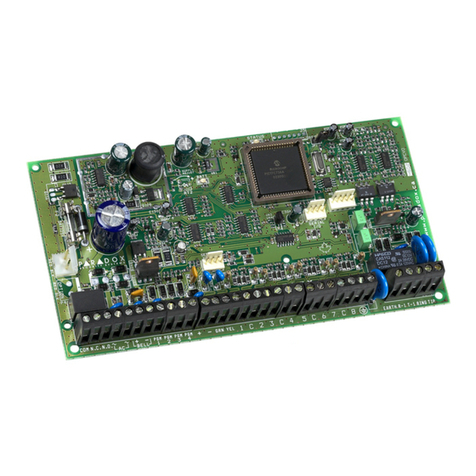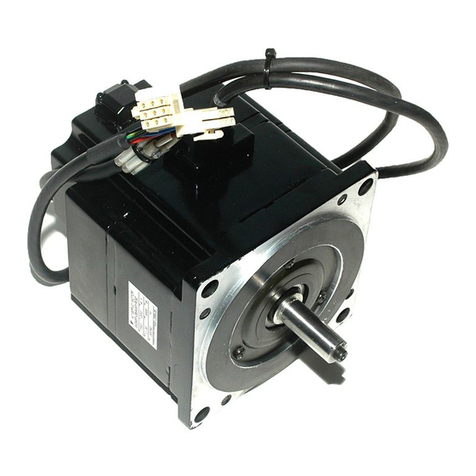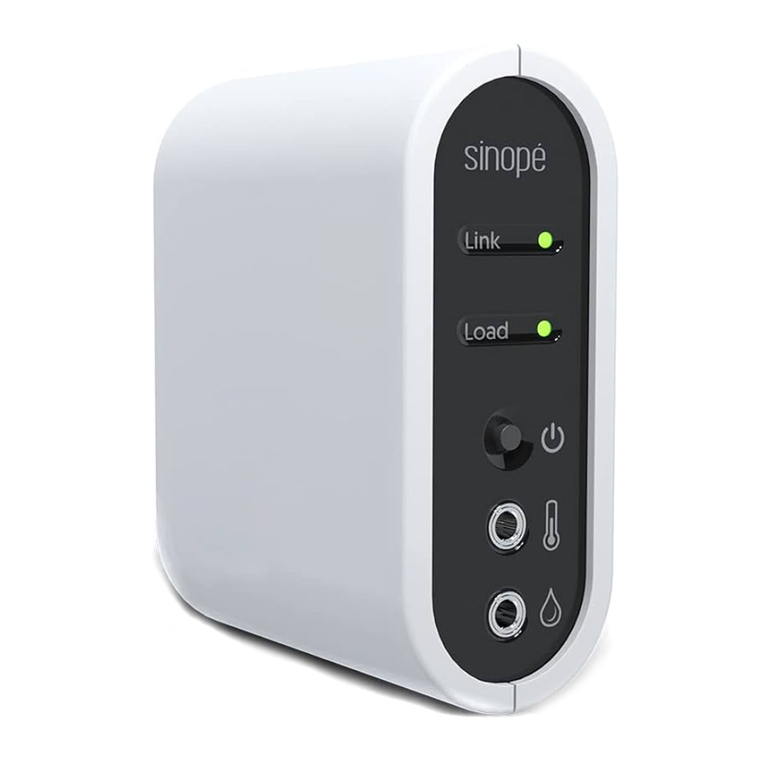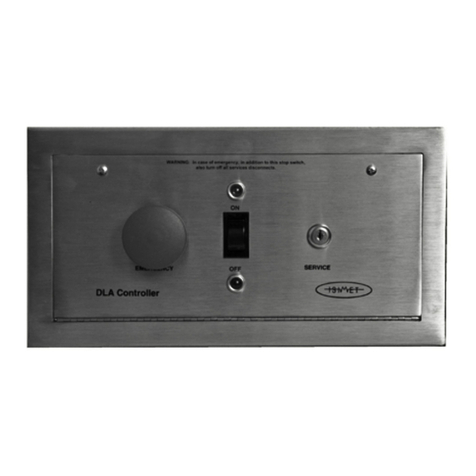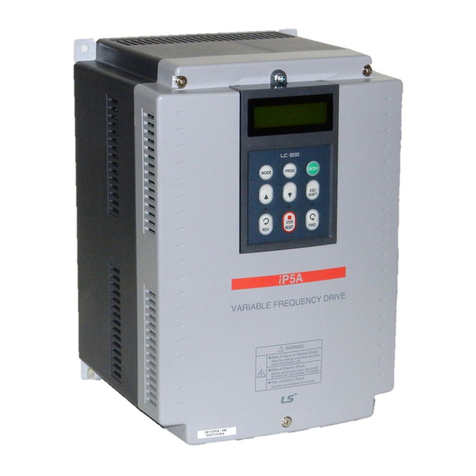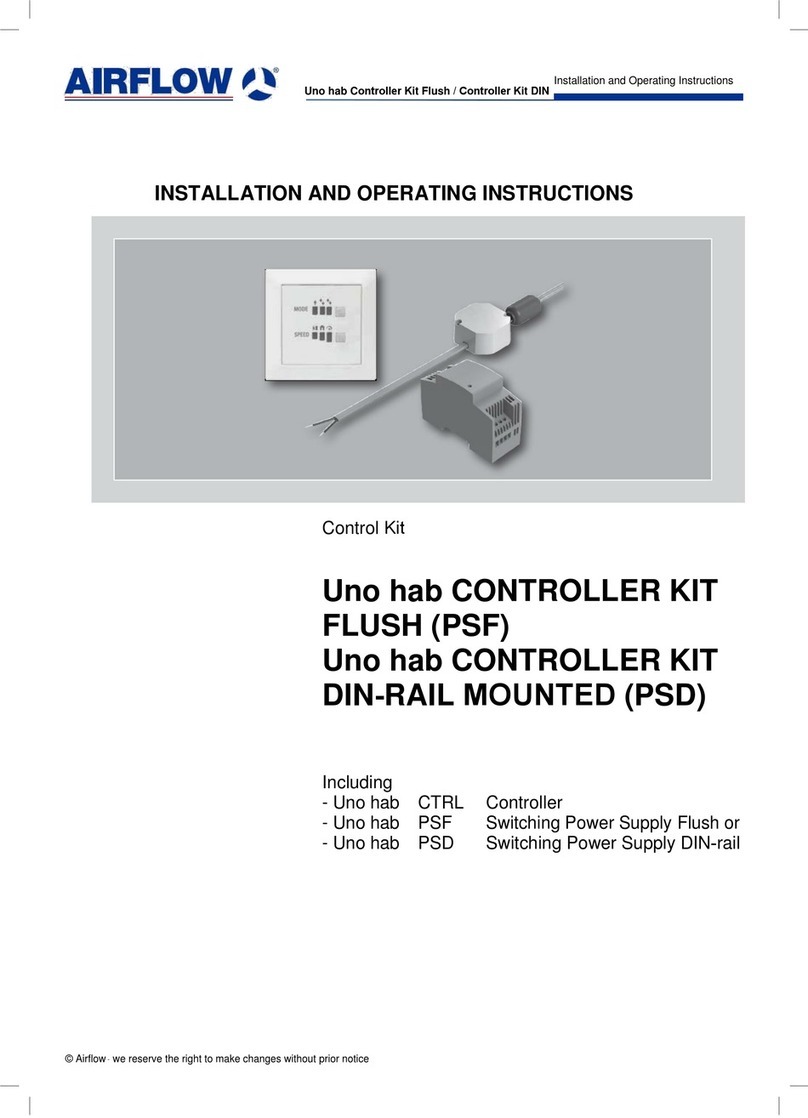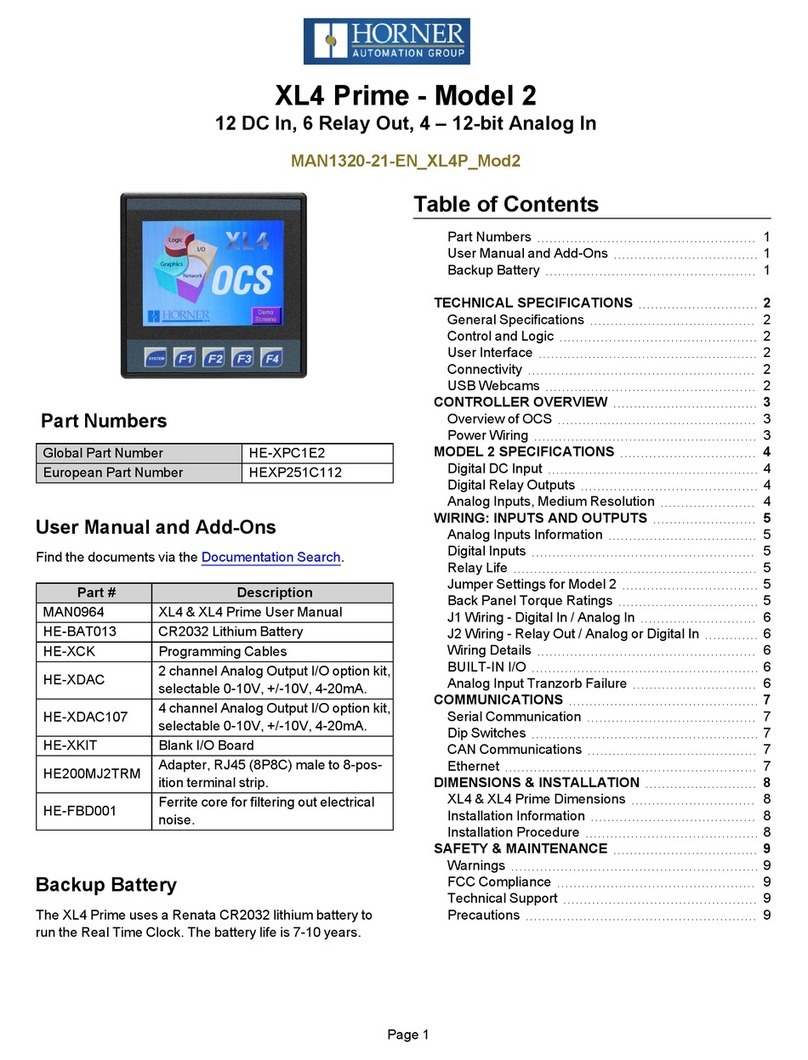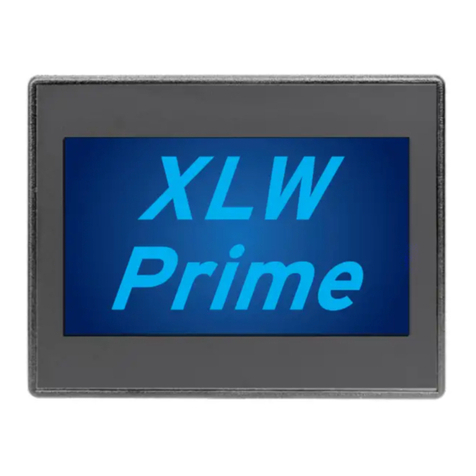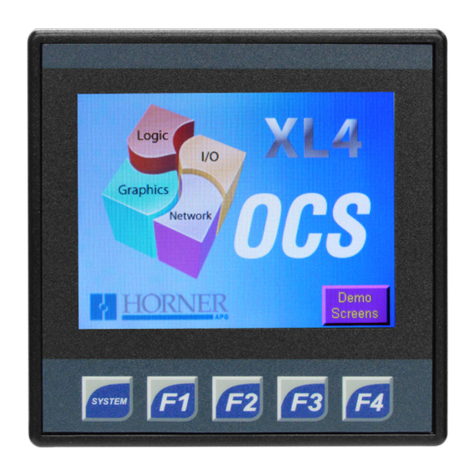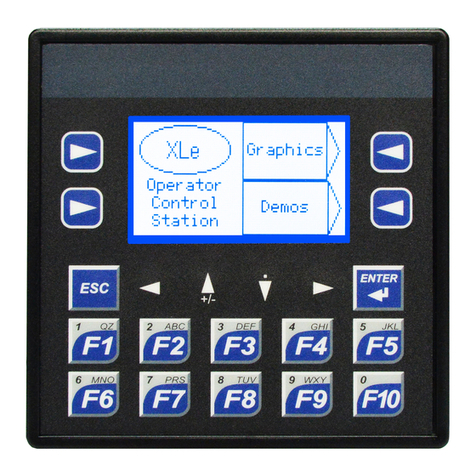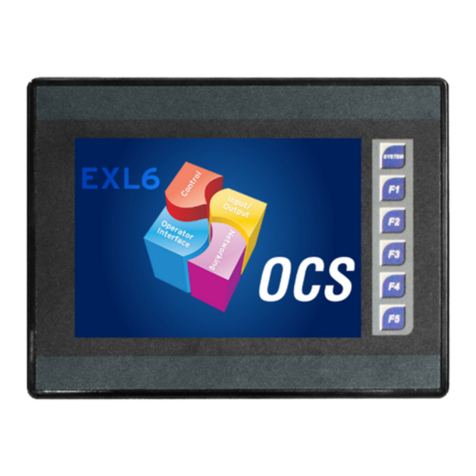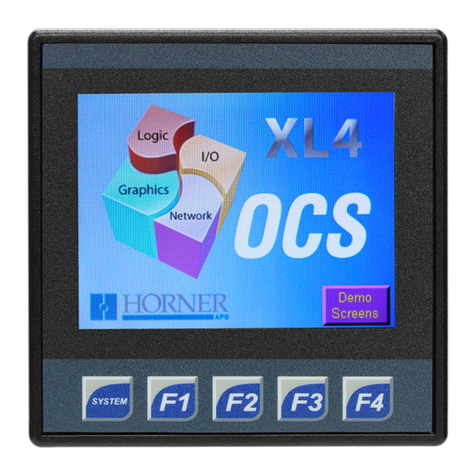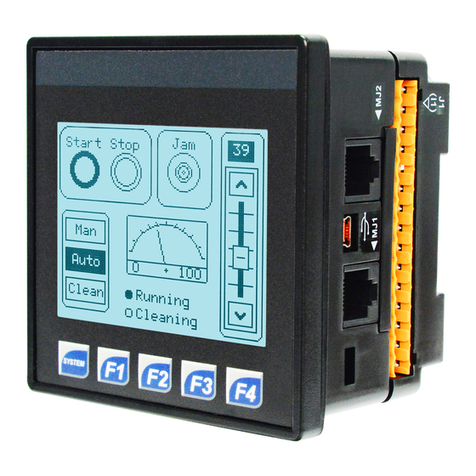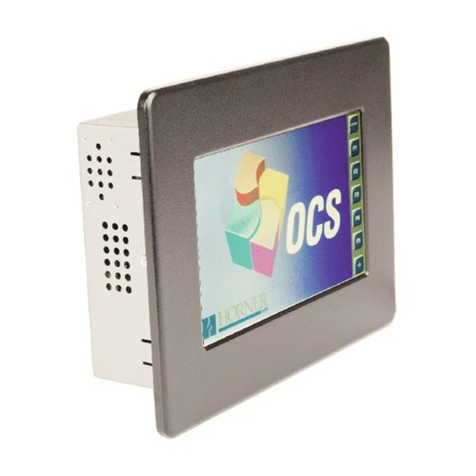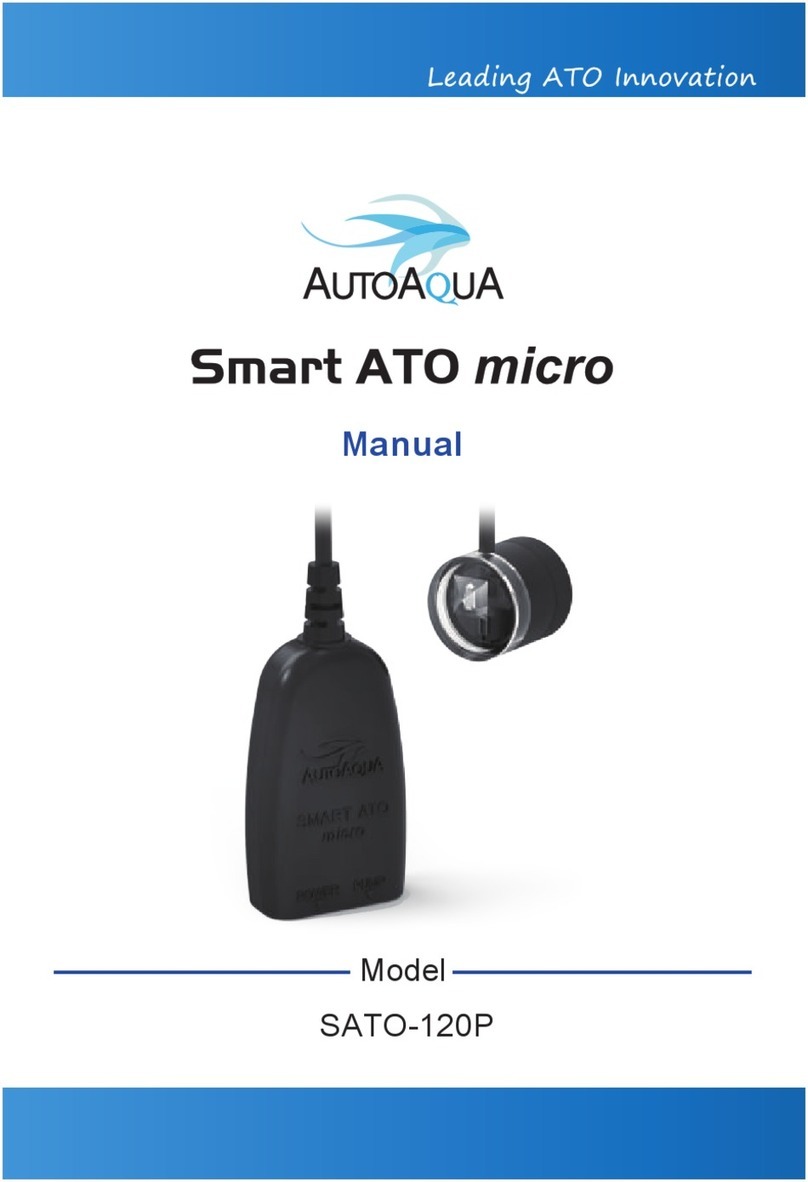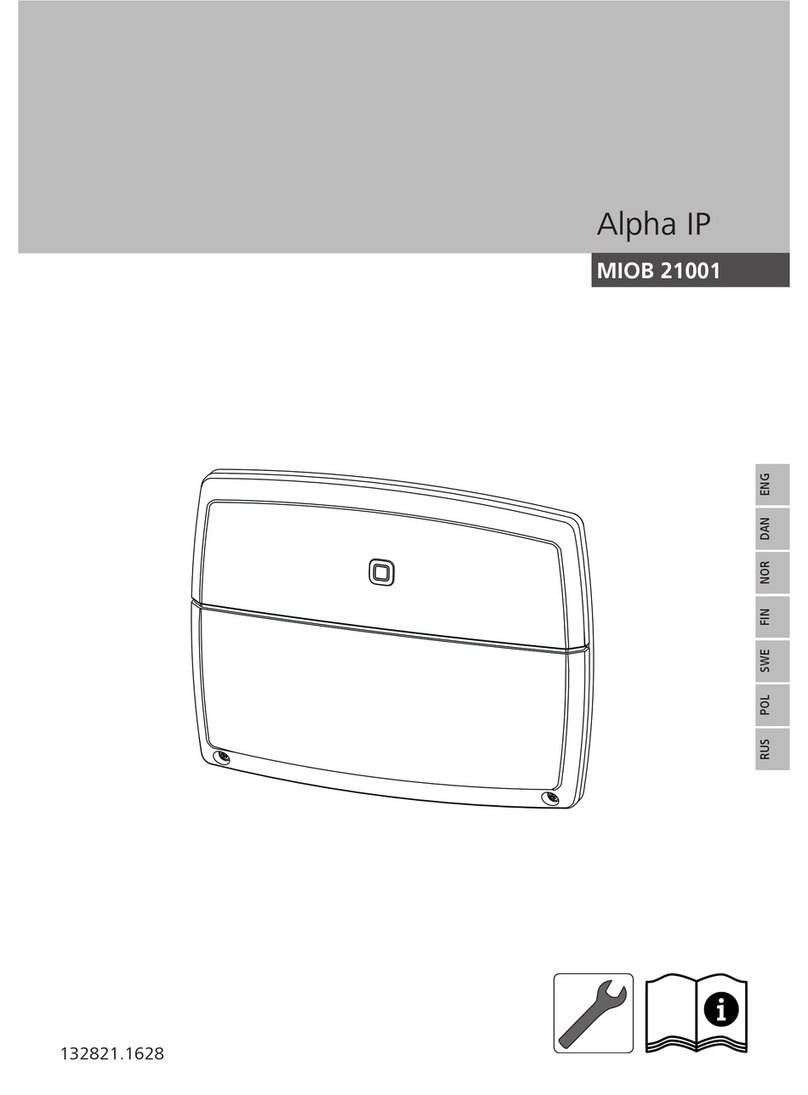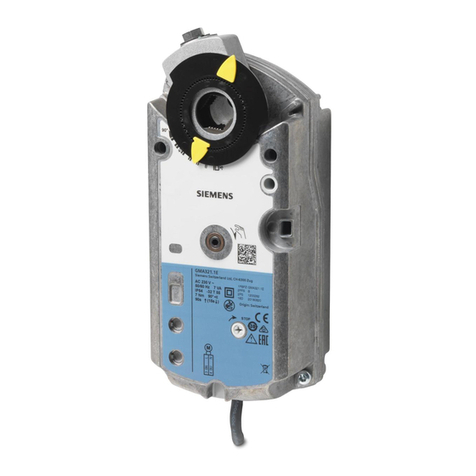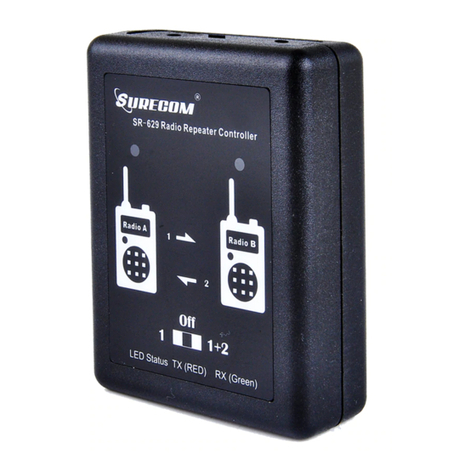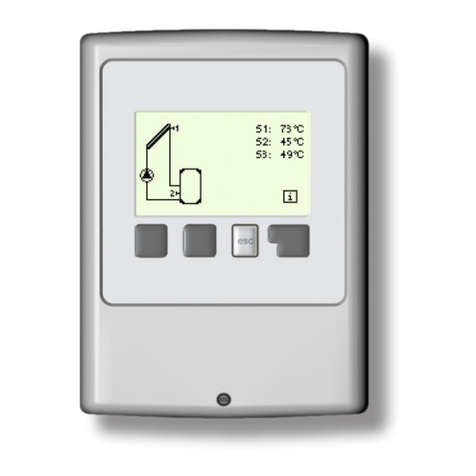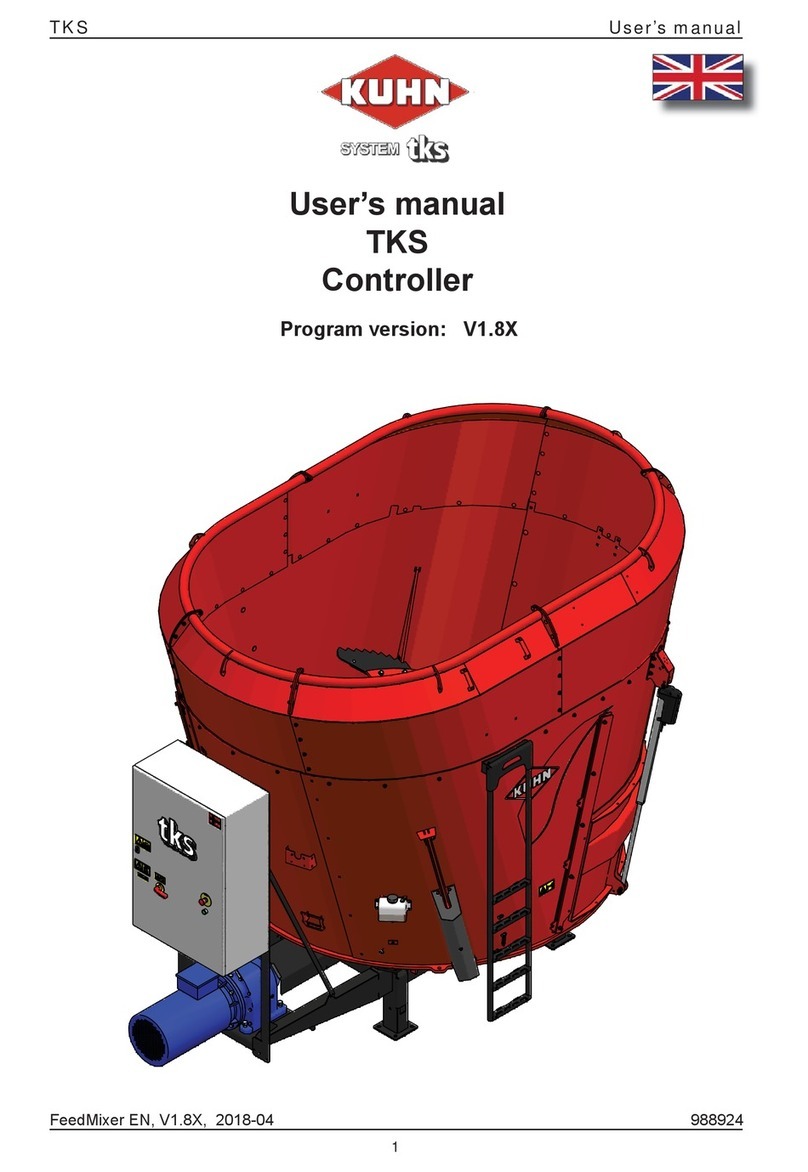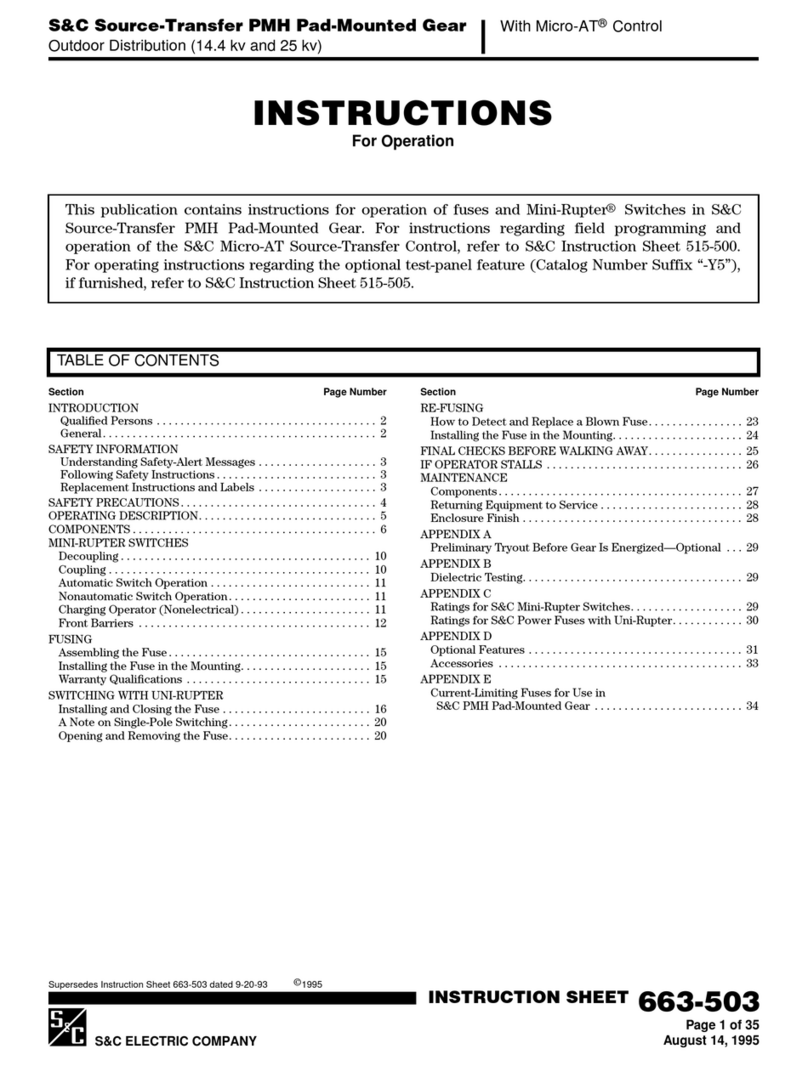
12/18/2018 | MAN1202-01-EN
Indianapolis, USA | Cork, Ireland | Calgary, Canada | Bangalore, India | Oakleigh, Australia | Tianjin, China | Esteio, Brazil
Please visit our website for a complete listing and to learn more about certified Horner Automation products.
This document is the property of Horner Automation Group, and is subject to change.
page 4 of 4
7.1 - Precautions
All applicable codes and standards need to be followed in the installation of
this product. Adhere to the following safety precautions whenever any type of
connection is made to the module:
1. Connect the safety (earth) ground on the power connector first before
making any other connections.
2. When connecting to the electric circuits or pulse-initiating equipment, open
their related breakers.
3. Do NOT make connection to live power lines.
4. Make connections to the module first; then connect to the circuit to be
monitored.
5. Route power wires in a save manner in accordance with good practice and
local codes.
6. Wear proper personal protective equipment including safety glasses and
insulated gloves when making connections to power circuits.
7. Ensure hands, shoes, and floor are dry before making any connection to a
power line.
8. Make sure the unit is turned OFF before making connection to terminals.
9. Make sure all circuits are de-energized before making connections.
10. Before each use, inspect all cables for breaks or cracks in the insulation.
Replace immediately if defective.
11. Use copper conductors in Field Wiring only, 60/75˚C.
12. Do not disconnect while circuit is live unless area is known to be
non-hazardous.
13. Do not remove or replace jumpers or connectors while circuit is live unless
the area is known to be free of ignitable concentrations of flammable gases
or vapors.
14. EXPLOSION HAZARD – substitution of components may impair suitability for
Class I, Division 2.
15. Use caution when making connections to the controller to protect against
static discharge. Special care must be taken when replacing the battery or
inserting or adjusting I/O or communication boards.
16. Use caution when connecting controllers to PCs via serial or USB. PCs
and especially laptops may use “floating power supplies” what are
ungrounded. This could cause a voltage potential between the laptop and
controller. Make sure the controller and laptop are grounded for
maximum protection.
17. For protection of USB devices the part number HE-USBISO is available to
purchase from our website or your local distributor.
18. Failure to follow these guidelines can damage the controller and/or
controller.
19. If the equipment is used in a manner not specified by Horner APG, the
protection provided by the equipment may be impared.
7 - Warnings
7.3 - FCC Compliance
This device complies with part 15 of the FCC Rules. Operation is subject to the
following
two conditions:
1. This device may not cause harmful interference
2. This device must accept any interference received, including interference
that may cause undesired operation
6.1 - Connecting the X7 to a PC
8.1 - Technical Support
For further details, please refer to the Datasheet, MAN1138. For assistance and
manual updates, contact Technical Support at the following locations:
North America Europe
+1 (317) 916-4274 +353 (21) 4321-266
www.hornerautomation.com www.horner-apg.com
The X7 OCS can communicate with Cscape using USB to USB, USB to serial adapters,
serial port communications via MJ1 Port, or CAN (CsCAN).
To communicate with the X7 via USB you will need the Automated Driver Installer
located on our website. The drivers may be loaded from the HE-XEC Ethernet Utility
/ HTTP Web Server Demo / Communications Driver section of the support files page
found at : https://hornerautomation.com/support-files
Next, connect a PC’s (Personal Computer running a Windows Microsoft operating
system) USB port via USB cable to the USB mini B port on the X7 OCS.
Now that the X7 is plugged in, go to the Cscape menu Controller --> Connection
Wizard, choose your connection method. If you’re connecting for the first time,
we suggest connecting via USB.
If communication is established, the target indicator will show the mode of the
controller Target: yy(R).
If the controller is not communicating, you may need to set the Target ID of the
controller in Cscape or change the controllers ID on the unit itself. The Target
ID allows directing communications to a particular unit when multiple units are
connected via a CsCAN network. Units without CsCAN network ports respond to
any network ID and do not require the ID to be configured.
For more information, review the Cscape Configuration chapter of the X7 OCS
User Manual, MAN1155.
7.2 - Hazardous Location Notice
Power, input and output (I/O) wiring must be in accordance with Class 1, Division
2 wiring methods [Article 501-4(b) of the National Electrical Code, NFPA 70] for
installations in the U.S. or as specified in Section 18-1J2 of the Canadian Electrical
Code for installations within Canada and in accordance with the authority having
jurisdiction.
1. THIS EQUIPMENT IS SUITABLE FOR USE IN CLASS I, DIVISION 2, GROUPS
A B C D or NON-HAZARDOUS LOCATIONS ONLY.
2. WARNING – EXPLOSION HAZARD – SUBSTITUTION OF COMPONENTS
MAY IMPAIR SUITABILITY FOR CLASS I, DIVISION 2.
AVERTISSEMENT - RISQUE D’EXPLOSION LA SUBSTITUTION
DECOMPOSANTS PEUT RENDRECE MATE RIEL INACCEPTABLE POUR LES
EMPLACEMENTS DE CLASSE I, DIVISION 2
3. WARNING – EXPLOSION HAZARD – DO NOT DISCONNECT EQUIPMENT
UNLESS POWER HAS BEEN SWITCHED OFF OR THE AREA IS KNOWN TO
BE NON-HAZARDOUS AND FREE OF IGNITABLE CONCENTRATIONS.
ATTENTION - RISQUE D’EXPLOSION - NE DECONNECTEZ PAS
L’EQUIPEMENT A MOINS DE L’AVOIR MIS HORS TENSION OU QUE LA
ZONE EST CONNUE NON-DANGEUREUSE ET NE CONTIENT PAS DE
CONCENTRATIONS INFLAMMABLES.
8 - Contact Information
